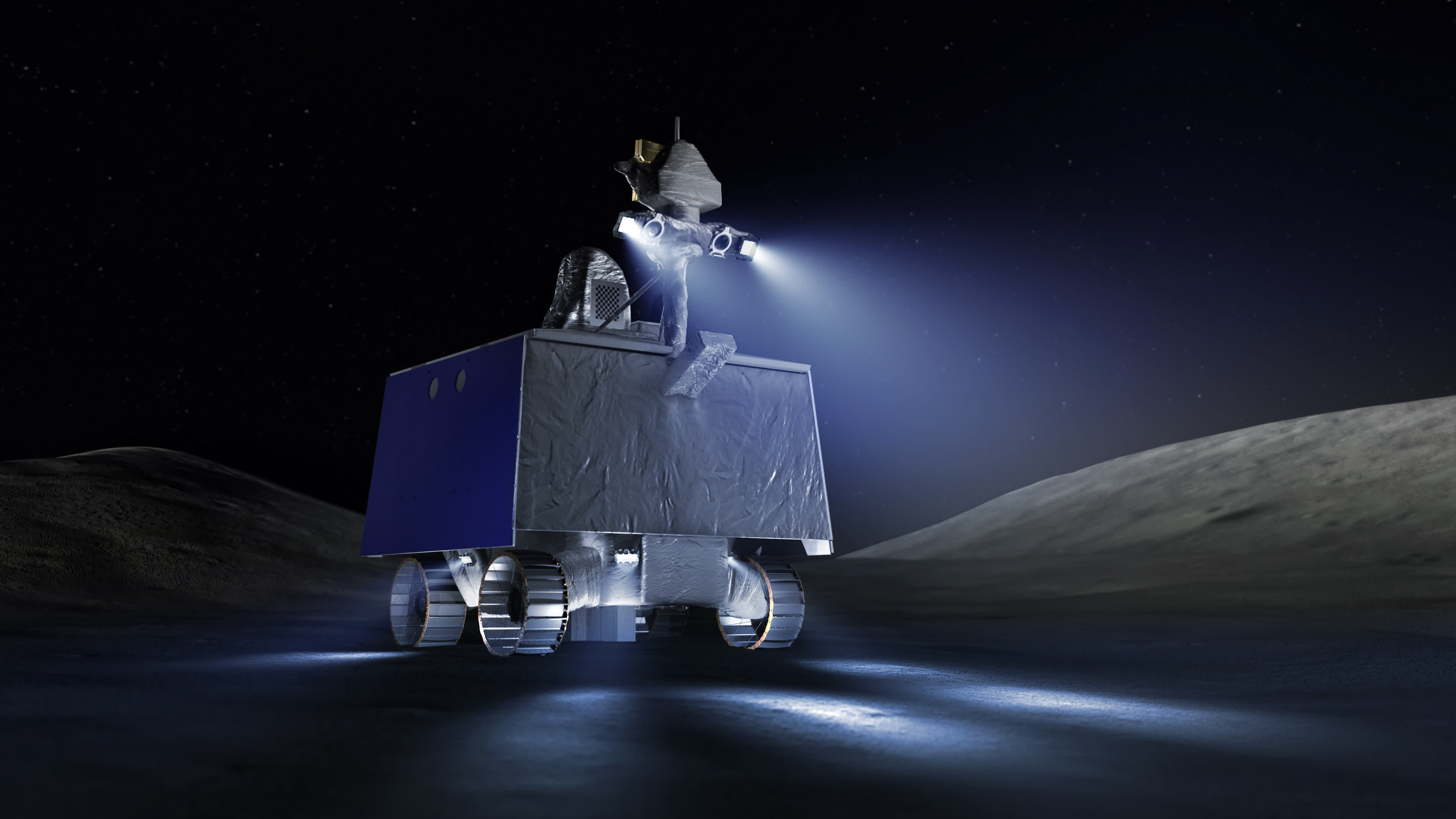What just happened? NASA has delayed the launch of the upcoming Volatiles Investigating Polar Exploration Rover (Viper) by a full year in order to conduct additional ground testing of the Griffin landing module.
In 2020, NASA contracted Astrobotic of Pittsburgh to build and deliver a rover to the Moon by late 2023. The rover will be tasked with searching the lunar surface for ice and other potential resources, and will return data to help scientists learn more about the origin and distribution of water on the nearby satellite.
The original contract was valued at $199.5 million, but with this most recent extension and others, it now totals $320.4 million.
The Griffin lunar lander will deliver the rover to the lunar surface as part of NASA's Commercial Lunar Payload Services (CLPS) initiative. CLPS is a key cog in NASA's Artemis lunar exploration plan, both of which will help lay the foundation for future visits to the Moon and beyond.

Knowing the location of valuable resources like water could help NASA in selecting future landing sites. Others could use data from Viper when building underground bases or artificial gravity colonies, and local resources could make it easier for future astronauts to travel to Mars.
Viper is the largest and most sophisticated science payload to be delivered to the Moon through CLPS, so they want to make sure all of their ducks are in a row. It'll weigh around 1,000 pounds and pack four science instruments capable of analyzing soil samples. An integrated drill will allow the rover to bore down nearly three feet into the lunar surface.
The rover is expected to spend around 100 days exploring the Moon's South Pole, but it'd all be for naught if the rover can't make it there safely. NASA said the additional testing will reduce the overall risk associated with delivery.
Viper is now on track to be delivered to the South Pole of the Moon by November 2024. Fingers crossed that we won't see any more delays (or budget hikes) between now and then.
